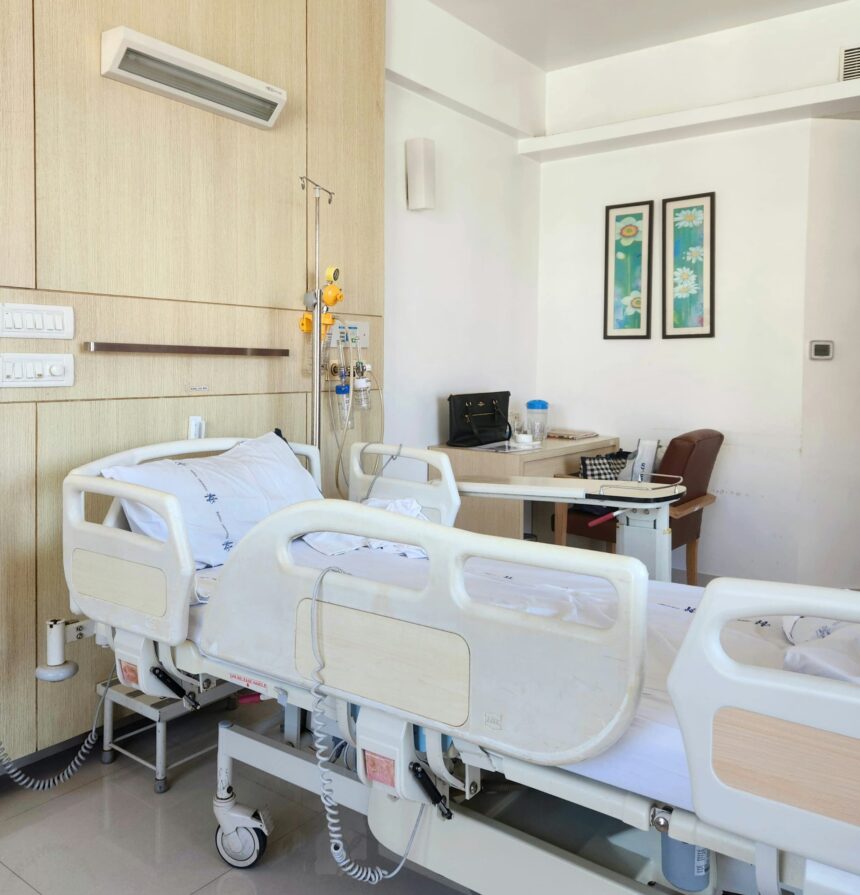Across rural Africa, millions of people walk into primary health centres every year unable to access even the most basic diagnostic services. It is this crisis that ZemedicAi, a Nigerian healthtech startup, is determined to solve.
Founded by Emmanuel Ezeji Zema, ZemedicAi is building an offline-first, AI-powered diagnostic ecosystem designed specifically for Africa. With solar-powered booths, edge AI models and rugged hardware, the company is reimagining what primary healthcare can look like in communities that have been left behind for decades.
In this edition of Techparley’s DRIVE100, where we showcase high-impact African startups, we feature ZemedicAi, the startup using offline-first AI and solar-powered diagnostic booths to bring hospital-grade diagnostics to underserved communities across Africa.
“ZemedicAi solves the problem of inaccessible and inaccurate primary diagnostics in underserved communities across Africa,” Emmanuel told Techparley.
What You Need to Know
ZemedicAi’s flagship innovation is a fully integrated diagnostic platform that brings reliable, specialist-level analysis directly to point-of-care. It is built for the exact realities of rural Africa.
The startup says these rugged, self-contained units operate entirely off the grid. Equipped with solar panels, lithium batteries, passive cooling, and dust-resistant casings, they are designed to survive extreme heat, humidity, and inconsistent logistics.
ZemedicAi’s algorithms run directly on the device, no cloud required. The system supports:
- Chest X-Ray interpretation (TB, pneumonia, cardiopulmonary abnormalities)
- Basic ultrasound interpretation
- Skin lesion analysis for infectious and chronic skin diseases
The AI produces results in minutes, complete with heatmaps, abnormality detection, and confidence scores, without depending on internet connectivity. ZemedicAi says it adheres to global standards including HIPAA and GDPR, with optional anonymised data uploads for improving model accuracy.
According to the startup, some of the benefits that transform primary healthcare includes:
- Minutes instead of days: Faster diagnosis for life-threatening illnesses.
- Affordable specialist-level care: Rural clinics get capabilities once restricted to tertiary hospitals.
- Empowered clinicians: A “virtual radiologist” reduces errors and improves confidence in decision-making.
Companies such as Qure.ai and other AI diagnostic firms generally serve urban hospitals with stable resources. By contrast, ZemedicAi says it is built explicitly for the 80% of primary health centres across sub-Saharan Africa that cannot rely on high bandwidth or continuous power.
What Sets ZemedicAi Apart
In less than a year, ZemedicAi has achieved milestones that many healthtech startups spend years chasing.
Key Milestones
- MVP Completed (Q1 2025):
Successfully launched a functional edge AI system for chest X-rays with 90%+ accuracy compared to expert radiologists. - Regulatory Progress (Q2 2025):
Began formal approval processes with NAFDAC and other regional regulatory bodies. - Pilot Deployments (Q3 2025):
Five solar-powered diagnostic booths installed across three underserved states in Nigeria.
Traction & Metrics
- 1 million+ scans analysed across test datasets and deployments.
- 30+ hospitals and clinics already using the SDK or booth installations.
- 65% reduction in referral times for suspected TB cases in pilot locations.
- Strong partnerships with telecom providers and a major development finance institution (DFI) exploring scale-up financing.
“We provide AI-powered diagnostic assistance at the point-of-care, specifically designed for extreme African environments. We offer an integrated diagnostic ecosystem,” Emmanuel said.
Meet the Team
- Emmanuel Ezeji Zema – CEO & Strategy Lead
A seasoned operator in Africa’s tech ecosystem, Emmanuel is skilled in regulatory navigation, product scaling, and building technology for low-infrastructure environments. His experience at Zema IT Solutions shaped his understanding of the political and economic barriers affecting health delivery.
- Dr Valentine Obidi – Chief Medical Officer
A radiologist with over 15 years of clinical experience in both rural and urban African hospitals, Dr Obidi ensures that the AI produces clinically reliable results. He previously led radiology at a major teaching hospital and has been a strong advocate for telemedicine adoption.
- Eng. Nitesh Rijal – CTO
A specialist in edge computing and optimised neural networks, Nitesh leads the effort to run advanced AI on low-power hardware. Formerly a senior software architect at a multinational telecom company, he brings deep expertise in low-bandwidth data optimisation.
Together, the trio combines technical depth, clinical authority, and market insight, exactly the blend needed to solve Africa’s diagnostics crisis.
What Government Must Do to Help Innovation
Zema believes the government can be the most powerful enabler of innovation, if it shifts its role from regulator to de-risker.
If He Were Minister of Communications & Digital Economy
He would:
- Mandate Offline-First Solutions: Ensuring all government digital infrastructure works without power or internet.
- Create a Sovereign Data Trust: To provide startups with anonymised datasets for training AI the right way.
- Implement a continental “Africa Regulatory Passport”: So approvals in one country unlock expedited approvals in others.
Is AI Hurting or Helping Africa?
Zema estimates AI’s impact as 80% positive and 20% risky. Positive in that AI democratises access to healthcare, credit scoring, and agricultural forecasting. Risky because African startups often get stuck in “pilot purgatory” due to cloud dependence, and models trained on Western data can produce inaccurate results if not localised.
Zema also challenged VCs to stop acting solely as financiers and become true partners. He said they must offer infrastructure advisory, talent development support, cross-border regulatory facilitation, and longer investment horizons.
ZemedicAi represents more than a startup, it symbolises a new era of African innovation, one that confronts infrastructural realities instead of ignoring them.
With solar power, edge AI, and rugged engineering, healthcare experts say the company is proving that life-saving diagnostics should not be limited to cities or wealthier populations. If ZemedicAi succeeds in scaling its vision, Africa’s health outcomes could change dramatically. Early detection will become the norm.
Talking Points
It is remarkable that ZemedicAi has built an entirely offline-first diagnostic ecosystem, directly confronting one of Africa’s most persistent healthcare barriers: unreliable electricity and poor internet connectivity.
This single design choice positions ZemedicAi as a practical, life-saving solution for primary health centres in remote and underserved communities, where traditional cloud-based diagnostic tools simply cannot function.
At Techparley, we recognise how innovations like this can transform healthcare delivery beyond major cities, ensuring that accurate, early diagnosis becomes accessible to the populations that need it most.
The integration of solar-powered booths, edge AI models, and clinician-friendly reporting means rural clinics can now operate with a level of diagnostic precision previously limited to tertiary hospitals. It empowers frontline clinicians, reduces referral delays, and drastically cuts the cost of specialist care.
As ZemedicAi scales across Nigeria and into new African markets, strategic partnerships with governments, NGOs, and development finance institutions could accelerate deployment and amplify impact.
——————-
Bookmark Techparley.com for the most insightful technology news from the African continent.
Follow us on Twitter @Techparleynews, on Facebook at Techparley Africa, on LinkedIn at Techparley Africa, or on Instagram at Techparleynews.





